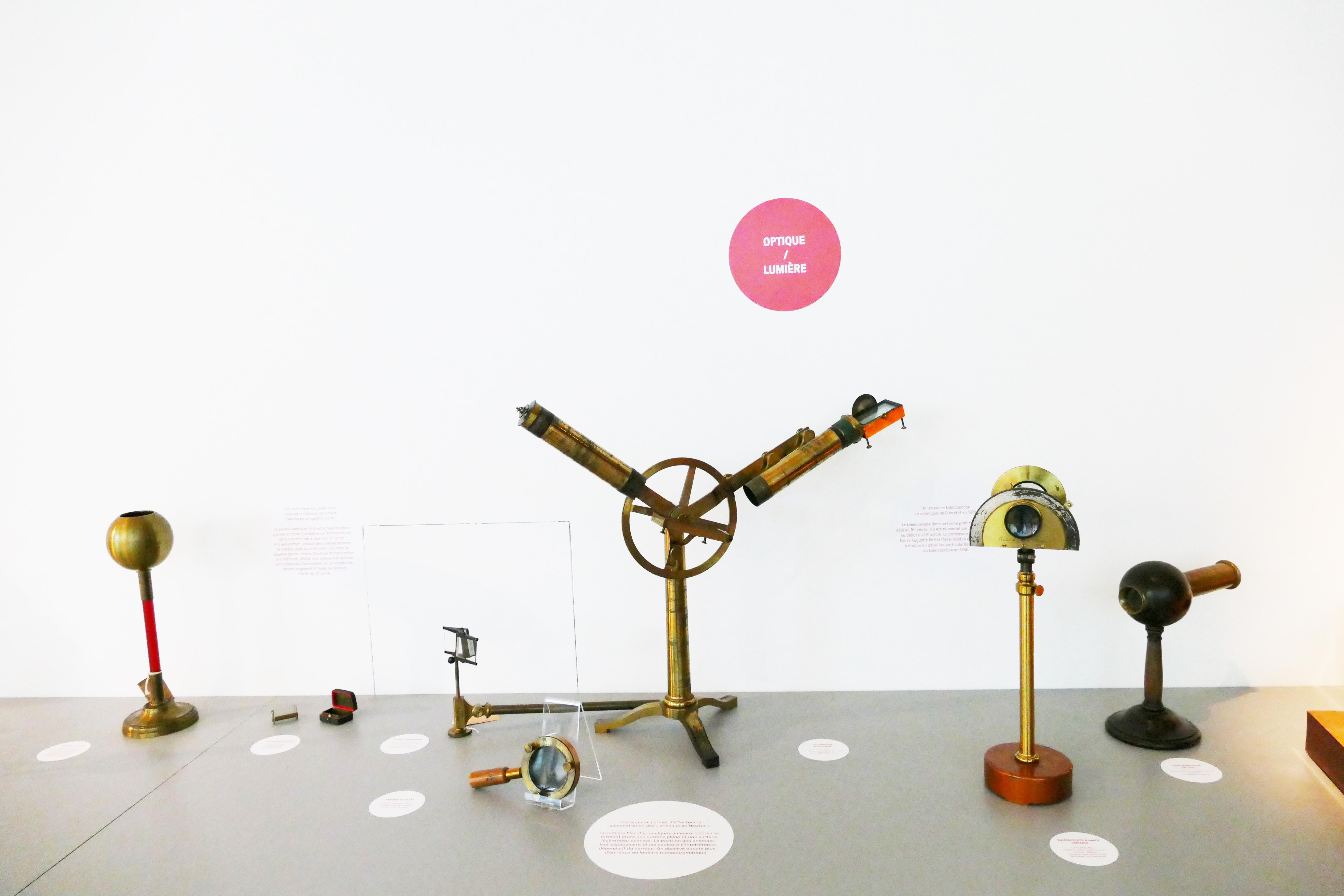EPFL Open Days: Digital humanities come to life at ArtLab

Mathieu Clavel’s VR demo of music of Afghanistan © 2019 EPFL
During the EPFL Open Days on September 14th and 15th, the public got a rare opportunity to discover first-hand what a technical school like EPFL can bring to the digital humanities – a field that applies data science and machine learning techniques to the study of art, music, history, and culture.
EPFL researchers in the digital humanities (DH) came together at the ArtLab DataSquare to present their research to a broad audience, giving visitors the chance to participate in an array of interactive demonstrations. Whether it was digital and cognitive musicology, antique scientific instruments, smartphone apps or musical heritage, the weekend had something for everyone.
Other CDH activities during the Open Days, which drew nearly 40,000 visitors as part of EPFL’s 50th anniversary celebrations this year, included several photographic and design exhibitions, as well as a roundtable debate on the future of artificial intelligence (AI).
Virtual reality meets music of Afghanistan
One of the most popular attractions was a digital humanities project that combined an immersive virtual reality (VR) experience with a traditional musical art form from Afghanistan called ghazal.
“There was music, and above you, you could see animated calligraphy [of the lyrics],” said one participant, Sylvie, describing the VR experience. “At first I was surprised, because I didn’t expect that, and then I found it interesting!”
The activity was a demonstration of the research of master’s student Mathieu Clavel from the Lab for Experimental Museology (EM+), who said he was pleased by the public reaction.
“This is first time we’ve had members of the public try out the experience, and they are really enjoying it! It’s motivation to continue,” Clavel said of the project, which aims to show how digital technologies like VR can be used to preserve intangible heritage like ghazal.
“Are you a Musical Oracle?”
At this demo organized by the Digital and Cognitive Musicology Lab (DCML), visitors were invited use the “Musical Oracle”: a computer program designed to test their abilities to predict the next musical chord in a sequence. The activity was partly an introduction to digital musicology – which unites the fields of music, computer science, data science and psychology – and partly an experiment in itself.
“We wanted to gather participant data for a new set of experiments, to see if people can predict music without any context better than chance, and what properties of music allow people to predict it,” explained DCML student Brooke Zampell. So how did visitors do? “Generally, it seems most people are doing better than chance – they are earning scores of around 65-75% correct!”
Scientific instruments in action
A special activity with Gilles Hernot from Geneva’s Museum of the History of Science was particularly popular with young visitors. With the aid of some balloons, tubes, soda bottles and Magdeburg hemispheres, Hernot demonstrated the properties of vacuums, and described the history of their discovery. His demo was accompanied by an exhibit of antique devices from the EPFL-UNIL Scientific Instruments Collection, which is being curated in collaboration with the CDH Laboratory for the History of Science and Technology (LHST). In addition to vacuums, there were instruments for measuring and manipulating sound, light, pressure, and magnetism.
Design and connected devices on display
Other projects from the College of Humanities at the Open Days went beyond the digital humanities. Students of the China Hardware Innovation Camp displayed some of their connected devices developed during fieldwork in Hong Kong and Shenzhen. Meanwhile, an architectural exhibition at the campus’s Centre Midi, “The first buildings of EPFL”, gave visitors a glimpse into the history of the Ecublens campus.
An exhibition entitled “Behind the Scenes” displayed photos and interview excerpts at the Rolex Learning Center. These brought to light the many non-academic professions represented at EPFL, as part of a course in the CDH Social and Human Sciences (SHS) program.
From light fixtures, dishes and baskets to graphic posters and prints, an industrial and graphic design exhibition in EPFL’s architecture building (SG) also showcased work created by EPFL students who took classes offered by Lausanne’s ECAL School of Art, also as part of the SHS program.
Ethics, society and the future of AI
Finally at a Sunday round-table debate at the SwissTech Convention Center on Sunday, organized by CDH in cooperation with the School of Computer and Communication Sciences (IC), experts including EPFL president Martin Vetterli, held a public dialogue on the topic, “Humanity, machine and data: what’s the future of artificial intelligence?” Reconfigurable Robotics Lab (RRL) head Jamie Paik lent her perspective as a developer of next-generation “soft” robots, while Digital Humanities Lab (DHLab) head Frédéric Kaplan talked about how AI is being applied to the humanities through initiatives like the Venice Time Machine project. Image and Visual Representation Lab (IVRL) head Sabine Süsstrunk brought her expertise on facial recognition and privacy to the debate, while Daniela Cerqui Ducret gave an external perspective as a senior lecturer in cultural anthropology at the University of Lausanne.
Moderator Anne Laure Gannac, journalist for Swiss public radio RTS, asked pointed questions about AI threats, such as job losses to automation, and regulatory and ethical issues. While the conversation remained optimistic in terms of the future of labor, the panelists voiced concern about the slow rate of regulation of these technologies compared to the speed at which they are being developed.
The audience was treated to a unique musical performance: the Ada String Quartet played several pieces, some written by humans and some created using an algorithmic composition tool called BachProp. The AI-generated music was part of a project by doctoral assistant Florian Colombo in IC/SV Computational Neuroscience Laboratory (LCN), led by Professor Wulfram Gerstner.















